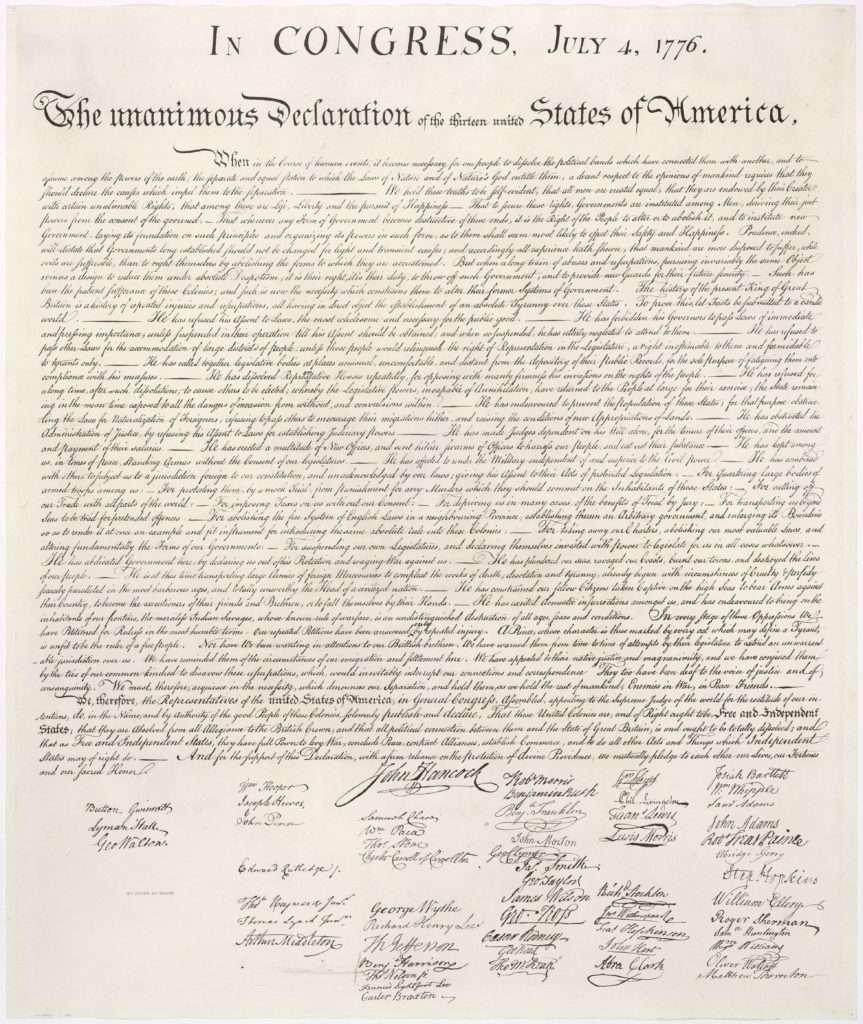The Volokh Conspiracy
Mostly law professors | Sometimes contrarian | Often libertarian | Always independent
Today in Supreme Court History: July 4, 1776
7/4/1776: Declaration of Independence is signed.

Editor's Note: We invite comments and request that they be civil and on-topic. We do not moderate or assume any responsibility for comments, which are owned by the readers who post them. Comments do not represent the views of Reason.com or Reason Foundation. We reserve the right to delete any comment for any reason at any time. Comments may only be edited within 5 minutes of posting. Report abuses.
Please to post comments


I hope no one tries to steal it.
Not sure what the DOI has to do with the Surpremes, other than we fought a war to not be ruled by wig wearing Poofs
The Continental Congress formally voted for independence on July 2, 1776. John Adams thought that would be the day celebrated.
They agreed to the final version of the DOI on July 4. They did not sign it on that date.
The Continental Congress adopted the Declaration of Independence on July 4, 1776. It was engrossed on parchment and on August 2, 1776, delegates began signing it.
https://www.archives.gov/milestone-documents/declaration-of-independence
The DOI justified independence. It provides the basic principles of our nation.
In 1878, Congress enacted a revised version of the United States Code – our nation’s official compilation of federal law – that included a new first section entitled, “The Organic Laws of the United States.” Organic laws are foundational.
Multiple Supreme Court opinions, both majority and separate, reference the DOI. Gray v. Sanders declared:
"The conception of political equality from the Declaration of Independence to Lincoln's Gettysburg Address, to the Fifteenth, Seventeenth, and Nineteenth Amendments can mean only one thing-one person, one vote."
Justice Stevens repeatedly cited the DOI to give meaning to the word "liberty" as in his dissent in Meachum v. Fano:
"I had thought it self-evident that all men were endowed by their Creator with liberty as one of the cardinal unalienable rights. It is that basic freedom which the Due Process Clause protects, rather than the particular rights or privileges conferred by specific laws or regulations."
The DOI also is cited for various purposes ...
https://lawprofessors.typepad.com/conlaw/2011/07/declaration-of-independence-in-the-supreme-court-term-2010.html
The document is a statement of principles. This means it is both vague and not truly reality. That is both useful and limiting.
Our Declaration: A Reading of the Declaration of Independence in Defense of Equality by Danielle Allen is a good book.
The Declaration of Independence predates establishment of the Supreme Court by 13 years. How then is July 4, 1776 a day in Supreme Court history?
We know from the musical 1776 that Samuel Chase, a future justice, took part in its formation.